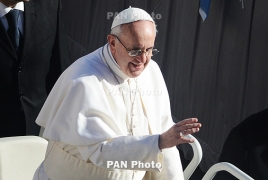“In the same way, anyone of you who does not renounce all his possessions cannot be my disciple.”
In this Sunday’s Gospel reading, Jesus lays out to the crowds—not just the disciples—the cost of discipleship. What Jesus says seems harsh and confusing: “If anyone comes to me without hating his father and mother, wife and children, brothers and sisters, and even his own life, he cannot be my disciple.” In my own life with my family, how can it be that I hate my family and then follow Jesus?
God, help me understand this. Because the use of the word hate seems discordant with the same God made man who says you must love your neighbor as yourself, I looked up the the Greek term from which hate is translated. Some of the translations render the Greek term as “love less” or “esteem less.” It is much easier for me to think that Jesus is asking me not to hate my family but to love them or give them less esteem than I do God. As Chicago Bears running back Gayle Sayers has said, “I am third. God is first, others are second, and I am third.”
From the Gospel acclamation, we hear: “Let your face shine upon your servant; and teach me your laws.” If anything stands in the way of that, Lord, let me put that aside. When you say that I cannot be your disciple unless I renounce my possessions, I must remember that everything I know in this world will pass away but that you are always present at my side. I think about Saint Francis renouncing all material goods right down to the robe that covered his skin. As Saint Paul says, “For his sake I have accepted the loss of all things and I consider them so much rubbish, that I may gain Christ.” God, “Teach us to number our days aright, that we may gain wisdom of heart.” Through your grace, let me learn to love you more than anything else I know or have.
Glory be to the Father, and to the Son, and to the Holy Spirit. As it was in the beginning, is now, and ever shall be, world without end. Amen.
